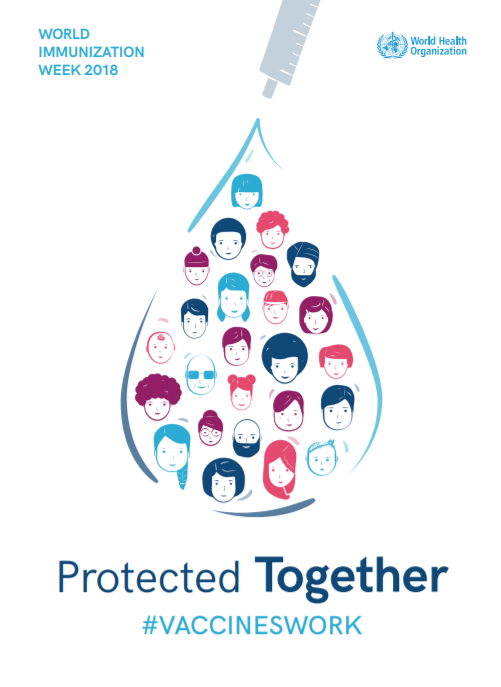Immunisation for Older Adults – What You Need to Know

Because the World Health Organisation is celebrating World Immunisation Week on the 24th until the 30th of April 2018, we at Kalinga thought it was a worthwhile topic to cover.
Of course, babies and children are first in mind when people talk about vaccination but the truth is that immunisation becomes just as important to older adults. In fact, our immune systems become less adept at protecting us from viruses and infections as we approach 50 and older. Some diseases, like the flu, even affect seniors worse than they might someone younger, hence the value of getting immunised.
If you’re an elderly adult or if you’re caring for a senior, we recommend making sure that all necessary vaccines and booster shots are updated so that you don’t have to worry too much about getting certain infections and diseases. Here are some of the shots you’ll need to look into:
- Tetanus – You can develop tetanus from contaminated wounds. The disease typically shows itself through stiff necks, lock jaw, extreme muscle spasms, and can also be fatal. You should get the shot as soon as possible when you’ve received a cut or have been bitten by an animal if you haven’t gotten vaccinated or had a booster within the last five years.
- Diphtheria – This infection manifests itself through a fever, weakness, difficulty breathing and swallowing, a sore throat, and swelling in the neck. Diptheria can be transmitted from infected individuals.
- Pertussis – Also known as “whooping cough,” this illness is very contagious and will first appear as common cold symptoms but may progress to coughing fits where you may make “whooping sounds” as you try to breathe. You can get a combination vaccine for tetanus, diphtheria, and pertussis called the Tdap. It’s a once-in-a-lifetime vaccine but you may need boosters every 10 years for tetanus and diphtheria.
- Chickenpox – This highly-contagious virus causes rashes of tiny, itchy blisters accompanied by fever and fatigue. Though often mild in healthier children, chicken pox can be very serious for adults, especially those who are immunocompromised.
- Hepatitis-A – In older adults, this liver disease may cause issues in blood clotting, confusion, liver problems, swollen liver and spleen, in addition to fevers, pains, and nausea. This is normally spread through contaminated food and water.
- Hepatitis-B – Also a serious liver infection, hepatitis-B has symptoms like jaundice, stomach issues, and fever and in some cases, can be chronic (lasting more than six months). Liver scarring, cirrhosis, and liver failure are also a risk for those who have chronic hepatitis-B.
- Flu – A common viral infection that comes with fever, fatigue and body pains, influenza is highly contagious and can lead to complications like pneumonia. A yearly vaccine is recommended for Australians aged 65 and above. It should be noted that August is flu season in Australia.
- Shingles – Also referred to as the zoster virus, this is a painful red rash that comes from the same virus as chicken pox. Symptoms may be fever with chills, muscle weakness, and tiredness and on rare occasions, may develop complications like eye pains (which, untreated, may cause eye damage), loss of hearing, and bacterial infections.
- Pneumococcal disease – Pneumonia is just one of the infections that can come from the pneumococcus bacteria; ear and sinus infections, as well as meningitis and bacteremia are other diseases one might be at risk for because of the aforementioned bacteria. The good news is that the Australian government subsidises influenza and pneumonia vaccinations for citizens who are 65 years old and older. The National Immunisation Program (NIP) also provides the Zostavax (for the varicella-zoster virus, aka shingles), free, to 70-year olds. Please see the NIP schedule here.
It is recommended that older adults are vaccinated against the abovementioned diseases, but this may be more or less depending on the individual’s medical history and exposure to risk factors. To make sure that you or your senior get the best advice about when to get immunised, what side effects to expect, and if there are any precautions you might need to take with regards to medication and allergies, it’s best to consult your general practitioner. GPs, Aboriginal Medical Services, local councils, and health centres can also provide pertinent information regarding immunisation.
The World Health Organisation is celebrating World Immunisation Week with the theme “Protected Together, #Vaccines Work,” underscoring how everyone in the community needs to take part so that everyone has a better chance against vaccine-preventable diseases. Learn more by visiting the World Health Organisation’s World Immunisation Week website.





 Kalinga at Shona Lee’s Feldenkrais Method Walking Well Session
Kalinga at Shona Lee’s Feldenkrais Method Walking Well Session
 Lessons from the NSW Government’s “April Falls Day” 2018
Lessons from the NSW Government’s “April Falls Day” 2018
 Community Service and its Role in Improving Quality of Life for the Elderly and Disabled
Community Service and its Role in Improving Quality of Life for the Elderly and Disabled